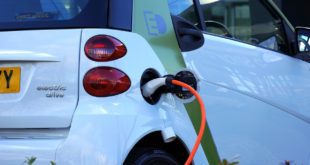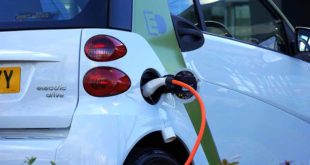When the idea of the electric car was proposed to minimize greenhouse gases and pollution, the two basic platforms were the hybrid platform and a pure electric platform. When it comes to the latter, the main issue is the low range of operation. While the breakthrough in battery technology is unlikely to happen, students, scientists, hobbyists and of course companies are experimenting with solar rooftop panels. The question is: Is the idea viable and achievable?
Electric cars with rooftop solar panels are already classified as solar cars. These cars depend on PV cells that convert direct sunlight into electricity to drive the electric motor. Solar panels combine technology from various industries; aerospace, bicycle, automotive and even alternative energy industries. The problem with solar panels is that they can only collect a limited amount of power and energy over the surface of the car. If the electric car is solely dependent on rooftop solar panels, it may limit the number of passengers. Well, let’s be honest, if we’re to build an all-solar car, there won’t be no space for a passenger – it will be just a very basic and light car with a single seat.
As it stands now, this futuristic idea can only work as a backup option but a good backup option it is indeed. Today’s technology allows the cars to significantly increase the range by making use of sunshine.
Toyota Prius with a Special Roof
Although Toyota has played with the idea of solar roofs for a long time, the Prius concept was actually built by a US-based company called quite appropriately – Solar Electric Vehicles. Their 2009-spec model was a real success. While the manufacturers are talking about solar sunroofs that can power your air con, the SEV built a fully-working concept that actually put energy in the batteries thus extending your all-electric driving range by considerable 30 minutes. So, if you’re just running short school runs or going shopping, you could go fuel-free – just using the ambient energy provided by nature. That’s the ideal situation, meaning that cloudy and rainy days will put very little juice in your batteries. This peculiar Toyota car is not yet available for sale, however, it sets a precedent, which is always a good thing with new technology.The Prius is one of the most obvious choices and we’re sure if Toyota and SEV decided on a partnership, the car buyers would be queueing outside the dealerships.
Venturi Eclectic
The troubled French supercar maker now under rule of a Monaco-based millionaire, keeps surprising us with a daring concept from time to time. The Eclectic is a glimpse into the future of motoring… a very optimistic glimpse, to be precise. The car is not weather-proof but don’t let that distract you from the main benefits of this small vehicle. Venturi claims that this is the world’s first truly autonomous car. So it may be – it features a huge photovoltaic panel on the roof and a retractable wind generator that you can hoist in the evening so that it keeps generating and storing energy even when it’s dark. The small Venturi is not yet available for sale. It will need some doors and windows first to be able to appeal to potential car buyers.
The Solar Taxi
The most successful electric car project with rooftop solar panels (or solar assist) is a Swiss project named “Solartaxi.” The car has circumnavigated the globe and has logged 50,000 km in 18 months while traversing 40 different countries. The car is roadworthy and it hauls a trailer that contains the solar panels which measure 6 metres squared. It has special batteries called Zebra batteries that permit the car to move up to 400 km without the need for recharging. It can achieve a maximum speed of 90 km/h, weighs a mere 500 kg while the trailer weighs 200 kg.
The project initiator Louis Palmer believes that the car can be mass-produced for 16,000 Euros. This is not a cheap price but it is a price that many interested buyers can afford. During the time from 2007 to 2008, the “Solartaxi” proved that solutions related to global warning are within reach. The car also made the tour to encourage people to seek other avenues rather than fossil fuel. Although the technology is not perfect, the potential is there and it will only be a matter of time that mass-production for electric cars with rooftop solar panels will become a reality. An increase in the efficiency of solar panels in general will be a big step towards the reality of the rooftop solar panel cars.
The main issue with current solar cars is that the photovoltaics are not yet efficient enough. At least that’s what the manufacturers will tell you. However, if you look at the feed-in tariff schemes, you’ll see that many home-owners have benefited from installing the PVs on their roofs. It is possible to generate decent amount of electricity from the sun, and it’s only a matter of time when your new car will boast a stylish black panel on the roof.
 Alternative Energy HQ solar power for homes, wind energy, and bio fuel issues
Alternative Energy HQ solar power for homes, wind energy, and bio fuel issues






